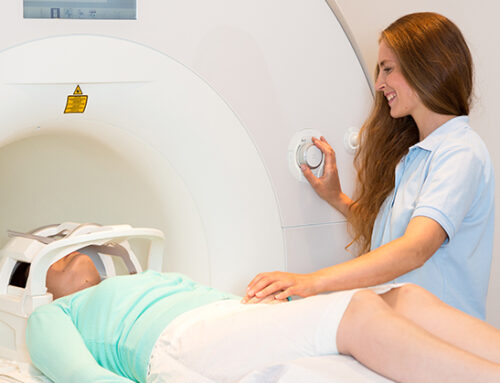While Alzheimer’s disease is certainly the best-known type of dementia, there are others to be aware of.
One is called frontotemporal dementia (FTD), also known as early-onset dementia because it’s usually diagnosed in middle age, between the ages of 45 and 65.
While FTD is not as common as Alzheimer’s disease, occuring in ten percent of dementias, when it happens it’s often overlooked and misdiagnosed.
FTD damages lobes at the front—hence the name—or sides of the brain. Depending on where the damage occurs the disease can cause various changes in personality, behavior and language.
FTD is difficult to diagnose. For one thing, apathy is a common symptom of the disease. Many patients visit the doctor’s office suffering from apathy before any other symptoms appear, so doctors frequently misdiagnose this dementia as depression.
But thanks to breakthrough new research the problem of misdiagnosis could now be a thing of the past.
Scientists have discovered a key feature of FTD that could finally lead to a dependable diagnosis. This feature is anhedonia, or the inability to feel pleasure.
A Neglected Syndrome
A great deal of human behavior is driven by the desire to experience pleasure, and experiencing pleasure depends on the integrity of brain circuits involved with FTD.
It was already known that behavioral symptoms of FTD include a decreased interest in food and sex, disengagement from formerly pleasurable pastimes and withdrawal from social activities.
So, to explore the symptoms more deeply, scientists at the University of Sydney, Australia carried out a unique study into anhedonia and FTD.
To investigate, they enrolled 121 participants with either FTD or Alzheimer’s, plus another 51 healthy older adults. They gave each participant a brain scan and various tests to assess and distinguish between anhedonia, apathy and depression.
The Australian research team also questioned caregivers about whether they noticed a difference in the participant’s experience of pleasure before and after diagnosis of FTD. The results were trailblazing.
A Striking Loss of Pleasure in FTD Patients
Carergivers of patients with FTD rated them as having higher levels of anhedonia than caregivers of Alzheimer’s patients.
What’s more, brain scans showed that in FTD a loss of gray matter density takes place in “hedonic hotspots” where pleasure mechanisms are concentrated. This robust and highly significant finding was not seen in either the Alzheimer’s patients or the healthy controls.
Plus, the behavioral tests were also able to distinguish anhedonia from apathy. The researchers wrote, “By distinguishing anhedonia from apathy, we highlight the importance of studying anhedonia in dementia as a standalone entity with a unique neurobiological signature.”
Surprisingly, they wrote, this area of research had been “almost entirely neglected.”
Opens the Door to Better Diagnosis, New Treatments
The paper’s senior author, Professor Muireann Irish, said, “Much of human experience is motivated by the drive to experience pleasure but we often take this capacity for granted.
“But consider what it might be like to lose the capacity to enjoy the simple pleasures of life — this has stark implications for the well-being of people affected by these neurodegenerative disorders.
“We found that patients with frontotemporal dementia showed a marked drop from their pre-dementia [happiness] ratings to the current moment. We didn’t find the same striking loss of pleasure with patients with Alzheimer’s disease, which is quite interesting in itself.”
“Our findings also reflect the workings of a complex network of regions in the brain, signaling potential treatments.”
Professor Irish and her colleagues hope the findings from this study will allow FTD to be more easily distinguished from other personality and behavioral disorders, such as apathy and depression, for a more reliable diagnosis.
In addition, Professor Irish is hopeful that the findings will lead to new drug treatments and other therapies targeting the hedonic centers of the brain to improve the quality of life for FTD patients.
The study was published in the journal Brain last April.







